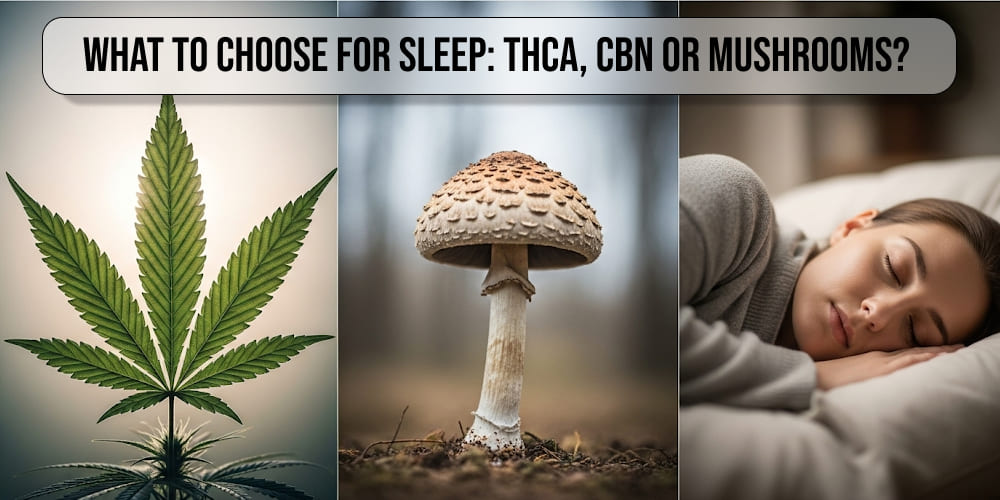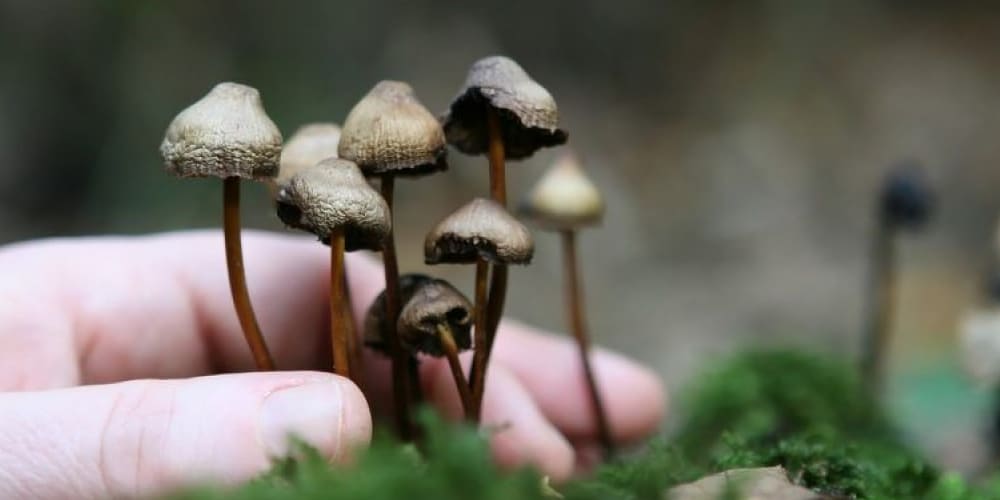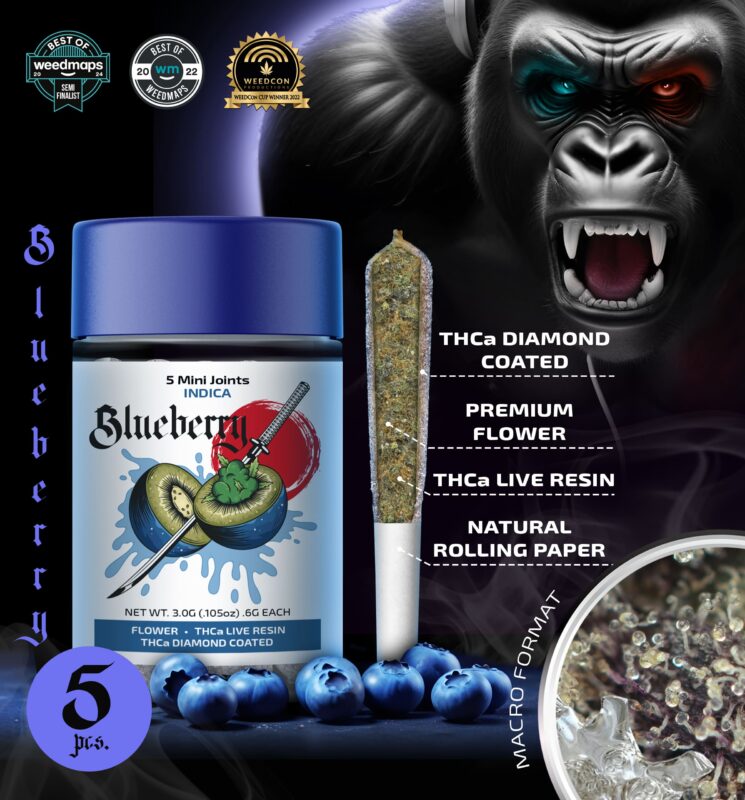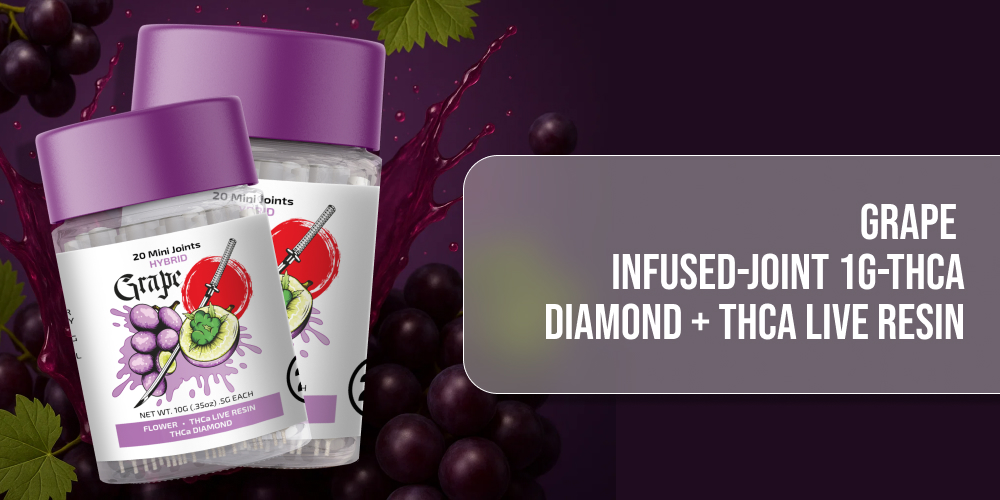Learn more about !
What to choose for sleep: THCA, CBN or mushrooms?

In today’s fast-paced world, where stress and endless striving have become the norm, deep, restorative sleep is often a luxury. Many of us grapple with insomnia, interrupted sleep, or simply the inability to unwind and drift off after a long day. While the pharmaceutical industry offers a wide array of sleep aids, an increasing number of people are seeking out natural, gentler alternatives. Today, we’ll explore three popular options that could help you find peace and enter the realm of slumber: THCA, CBN, and mushrooms.
Each boasts unique properties and mechanisms of action, and understanding these distinctions will empower you to make an informed choice for your sleep needs. Let’s uncover what these remarkable compounds offer and how they might become your steadfast allies in the quest for quality rest.
Choosing the ideal sleep aid demands a personalized approach. It’s crucial to consider not only the desired effect but also potential side effects and interactions with other medications. In this article, we aim to provide comprehensive and accessible information, enabling you to make a well-informed decision based on your specific needs and preferences. We’ll delve into both traditional understandings and the latest scientific insights regarding their efficacy and safety. Prepare to embark on a fascinating journey into the world of natural sleep supporters and discover how they can transform your nights for the better, without unnecessary drama or confusing jargon.
- THCA (Tetrahydrocannabinolic Acid): The non-psychoactive precursor to THC, often chosen as a natural sleep aid.
- CBN (Cannabinol): A cannabinoid formed from THC degradation, widely recognized for its sedative effects and ability to promote deep sleep.
- Mushrooms (Non-psychoactive): Various types, like Reishi or Lion’s Mane, traditionally used for their adaptogenic properties and potential to support restful sleep.
THCA: The Unsung Hero for a Peaceful Night
THCA, or Tetrahydrocannabinolic Acid, stands out as one of the most intriguing cannabinoids, serving as the direct precursor to the infamous THC. However, unlike its “offspring,” raw THCA is non-psychoactive, meaning you can potentially reap its therapeutic benefits without the unwanted “high.” Its presence in fresh, unheated cannabis makes it a subject of particular interest for those seeking natural solutions for various health concerns, including sleep disturbances. The way THCA works differs from THC; it interacts with the body’s endocannabinoid system in a unique manner, offering a distinct impact profile when considering what to choose for sleep.
It’s precisely this lack of psychoactivity that makes THCA so appealing as a sleep aid. Rather than inducing intoxication, THCA is believed to possess anti-inflammatory and neuroprotective properties, which can indirectly contribute to improved sleep quality by reducing discomfort and promoting overall relaxation. Many users report that regular THCA use helps alleviate tension and anxiety, common culprits behind sleepless nights. This positions it as a promising option for those seeking a gentle yet effective way to encourage a natural transition into slumber when deciding what to choose for sleep.
- Non-psychoactive precursor to THC, making it a safe choice for sleep.
- Potentially offers anti-inflammatory benefits that aid relaxation.
- May help reduce anxiety and promote overall calm, contributing to better sleep.

CBN: The Secret Weapon for Profound Sleep
CBN, or Cannabinol, is often dubbed the “sleepy cannabinoid” due to its potent sedative qualities, making it one of the most promising candidates in the fight against insomnia. Unlike THC, CBN doesn’t produce a significant psychoactive effect, even though it’s a byproduct of THC degradation. It forms when THC is exposed to air and UV light over time, leading to oxidation. This transformation alters the cannabinoid’s molecular structure, imbuing it with unique properties aimed at relaxation and sleep promotion. Research suggests that CBN can enhance the effects of other cannabinoids, creating an “entourage effect” that could be particularly beneficial for achieving deep, restorative rest, making it a strong contender for what to choose for sleep.
CBN interacts with the endocannabinoid system’s receptors, specifically CB1 and CB2, though its affinity differs from THC. This allows it to exert a pronounced sedative effect without the psychoactive properties inherent to THC. Users often describe a feeling of deep relaxation and drowsiness after taking CBN, making it an excellent choice for those struggling to fall asleep or stay asleep. Beyond its sedative action, CBN is also being investigated for its potential anti-inflammatory and analgesic properties, which could further improve sleep quality by alleviating pain and discomfort that often disrupt rest. If you’re wondering what to choose for sleep, CBN is a top consideration for its direct calming effect.
- A potent sedative cannabinoid without significant psychoactive effects.
- Forms as THC degrades over time, highlighting its natural origin.
- Highly effective for promoting deep relaxation and facilitating sleep onset.
Mushrooms for Sleep: Nature’s Wisdom at Work
When we talk about mushrooms for improving sleep, we’re certainly not referring to psychoactive varieties, but rather those that have been used for centuries in traditional medicine for their remarkable healing properties. Mushrooms like Reishi (Ganoderma lucidum), often called the “mushroom of immortality,” and Lion’s Mane (Hericium erinaceus), are gaining popularity in the Western world as natural adaptogens and nervous system supporters. These mushrooms contain no psychoactive substances and act entirely differently from cannabinoids. Their influence on sleep is mediated by their ability to modulate the body’s stress responses and support overall well-being. They offer a unique perspective on what to choose for sleep.
Reishi, for example, is traditionally used to calm the mind and body, reduce anxiety, and enhance sleep quality. It’s believed to help the body adapt to stress by balancing hormonal systems and promoting relaxation. Lion’s Mane, on the other hand, is known for its neuroprotective properties and ability to support nerve cell growth, which can indirectly improve sleep by promoting overall nervous system health and reducing neurological stress. Both mushrooms contain bioactive compounds like triterpenes, polysaccharides, and ergosterols, which are thought to be responsible for their beneficial effects. Their action is gentle and cumulative, making them suitable for long-term use without the risk of dependence when considering what to choose for sleep.
- Reishi (Ganoderma lucidum): Traditionally used for its calming properties and potential to reduce anxiety, leading to better sleep.
- Lion’s Mane (Hericium erinaceus): Known for its neuroprotective effects, supporting overall nervous system health which can indirectly aid sleep.
- Other non-psychoactive mushrooms: Many other varieties are also used to promote health and restful sleep, offering a natural option for what to choose for sleep.

Comparing the Contenders: THCA, CBN, or Mushrooms – Who Takes the Crown?
Now that we’ve met our three candidates for “best sleep aid,” it’s time to compare them head-to-head to understand when each might be most effective. THCA, as a non-psychoactive cannabinoid, focuses on reducing inflammation and promoting general relaxation, which can indirectly improve sleep, especially if sleep issues stem from physical discomfort or chronic anxiety. Its action could be described as more “tonic” for the nervous system. CBN, as we’ve discussed, is a direct sleep inducer; its effect is more pronounced and specifically targets drowsiness and maintaining deep sleep.
This makes it an ideal choice for those suffering from acute insomnia or needing a quick and reliable way to fall asleep. This direct comparison is vital when deciding what to choose for sleep.
As for mushrooms, their role in improving sleep is more complex and, one might say, “systemic.” They aren’t an instant sleep aid like CBN, nor do they possess the specific anti-inflammatory action of THCA. Mushrooms work as adaptogens, helping the body cope with stress, normalize hormone levels, and support overall nervous system health.
Their effect is cumulative and becomes apparent over time with regular use. Thus, mushrooms are the choice for those seeking a long-term solution to improve sleep quality through overall wellness and restoring balance in the body. Imagine not just putting out a fire, but strengthening the foundation of a house so it never catches fire in the first place, offering a holistic answer to what to choose for sleep.
- THCA: Ideal for reducing inflammation and promoting general relaxation, beneficial for chronic anxiety and indirect sleep improvement.
- CBN: Provides a direct sedative effect, rapidly inducing sleep, suitable for acute insomnia and quick sleep onset.
- Mushrooms: Offer adaptogenic benefits, improving sleep through overall body balance and requiring consistent, long-term use for best results.
How to Choose Your Perfect Sleep Aid: Practical Recommendations
Choosing between THCA, CBN, and mushrooms for improved sleep largely depends on your individual needs and the underlying reasons you’re struggling to get quality rest. If your sleeplessness is due to chronic pain, inflammation, or general tension, THCA could be an excellent starting point. Its non-psychoactive nature allows for daytime use, gradually building a therapeutic effect and preparing your body for nocturnal rest. Begin with a small dose and gradually increase it, monitoring your body’s response. Remember, THCA is best consumed raw, as heating converts it into psychoactive THC, a key consideration when deciding what to choose for sleep.
If you need a “switch-off” for your brain, capable of quickly ushering you into sleep, CBN is your go-to. It’s perfect for those nights when your mind races, or you simply feel overly stimulated. Start with the recommended dose, usually indicated on the packaging, and take it approximately 30-60 minutes before your desired bedtime. Be aware that CBN can induce strong drowsiness, so avoid activities requiring concentration after taking it. And if you’re seeking a long-term, holistic solution that not only helps you fall asleep but also improves overall health, then mushrooms are your answer. They won’t provide instant results, but with regular use, they can significantly enhance your quality of life and sleep.
- For THCA: Start with a low dose, ideal for managing pain and tension throughout the day to support nighttime sleep.
- For CBN: Take 30-60 minutes before bed for rapid sleep induction; avoid activities requiring focus afterward.
- For mushrooms: Consistent, regular use is key for cumulative benefits and overall sleep quality improvement.

Potential Side Effects and Precautions: Do No Harm!
Even the most natural and beneficial substances can have side effects, and our sleep aids are no exception. While THCA is considered very safe due to its non-psychoactive nature, individual sensitivities or allergic reactions are always possible. In some cases, mild gastrointestinal upset might occur. It’s crucial to start with a minimal dose and listen carefully to your body. As for CBN, its main “side effect” is pronounced drowsiness, which is, in fact, its primary purpose. However, an excessively high dose could lead to excessive lethargy or a “hangover” feeling the next morning. Also, as with any cannabinoid, there’s a possibility of interaction with other medications. This is vital information when considering what to choose for sleep.
Mushrooms, in turn, are generally considered among the safest natural remedies, but there are nuances. Rare cases of allergic reactions or gastrointestinal upset are possible, especially when starting consumption. It’s essential to ensure you purchase mushrooms from a reputable supplier to avoid contamination or mistaken identity. Pregnant and breastfeeding women, as well as individuals with serious medical conditions, should always consult a doctor before starting any of these remedies, including mushrooms. Remember, self-medication can be risky, and professional advice is key to your health and safety. Understanding these risks is part of deciding what to choose for sleep.
- THCA: Possible mild GI upset, individual intolerance.
- CBN: Excessive drowsiness, potential “hangover” from overdose, potential drug interactions.
- Mushrooms: Rare allergic reactions, GI upset, crucial to source from reputable suppliers.
THCa buds for Relaxation in 2025
How does the effect of THCA vape differ from THC vape?
Can You Microdose THCA?
Additional Factors for Sound Sleep: Beyond Just Substances
Remember that neither THCA, CBN, nor even magical mushrooms are a panacea for all sleep problems. Quality sleep is the result of a comprehensive approach that includes a healthy lifestyle and proper sleep hygiene. Even the most potent “sleep-inducing” supplement cannot compensate for chronic sleep deprivation, stress, or poor habits. Try to create optimal conditions for sleep: a cool, dark, and quiet room is your best friend. Avoid using electronic devices before bed, as the blue light emitted by screens suppresses melatonin production – the sleep hormone. These lifestyle factors are just as important as deciding what to choose for sleep.
Regular physical activity during the day also plays a crucial role, but avoid intense workouts a few hours before bedtime. Moderate physical activity promotes relaxation and helps burn off excess energy. Pay attention to your diet: heavy and fatty meals before sleep can cause discomfort and hinder restful sleep. And while caffeine and alcohol might seem like temporary aids, in the long run, they only exacerbate sleep problems. Remember that self-care is not just a trendy concept but a vital necessity, and quality sleep is one of its most important pillars. When considering what to choose for sleep, consider these foundational habits first.
- Ensure your bedroom is cool, dark, and quiet for optimal sleep conditions.
- Avoid screens and blue light exposure at least an hour before bedtime.
- Incorporate regular moderate exercise and a balanced diet, avoiding heavy meals before sleep.
Concluding the Sleep Quest: Towards Harmony and Rest
We’ve explored the world of THCA, CBN, and mushrooms as potential sleep aids. Each offers unique benefits and suits different situations. THCA can be beneficial for general relaxation and reducing inflammation, indirectly improving sleep. CBN is your quick and reliable “off switch” for the brain, perfect for those nights when sleep just won’t come. And mushrooms like Reishi and Lion’s Mane offer a more long-term, holistic solution, acting as adaptogens and supporting overall nervous system health. The choice is yours, and it should be based on a careful analysis of your individual needs. This comprehensive understanding is crucial for deciding what to choose for sleep.
Remember that in the world of cannabis products and natural supplements, it’s always important to choose trusted suppliers who guarantee the quality and safety of their products. And of course, don’t forget to consult with a medical professional, especially if you have chronic health conditions or are taking other medications. Our journey to quality sleep isn’t a sprint, but a marathon, and sometimes it takes time and experimentation to find your perfect combination. Don’t be afraid to try, but do so consciously and with respect for your body. May every night bring you deep, restorative sleep, after which you’ll wake up full of strength and energy, ready for new achievements. Sweet dreams, friends!
- Your choice of sleep aid should align with your specific needs and the root cause of your sleep issues.
- Always prioritize sourcing products from reputable suppliers to ensure quality and safety.
- Consult with a healthcare professional before starting any new supplement, particularly if you have pre-existing conditions or are on medication.

Final Thoughts on Your Journey to Restful Nights
So, we’ve explored the fascinating world of THCA, CBN, and mushrooms as potential allies in your quest for better sleep. Each offers distinct advantages and caters to different needs. THCA might be your gentle guide, easing inflammation and promoting overall relaxation, indirectly enhancing your rest. CBN stands as your direct route to slumber, ideal for those nights when sleep feels elusive. And the wisdom of nature, found in mushrooms like Reishi and Lion’s Mane, offers a systemic, long-term approach to balancing your body and mind for sustained restful nights. The decision of what to choose for sleep ultimately rests with you, informed by your unique circumstances.
Always remember that navigating the world of natural supplements requires a discerning eye, especially when considering THCA, CBN, or mushrooms. Prioritize quality, consult with healthcare professionals, and listen closely to your body’s signals. The path to quality sleep isn’t always linear; it’s a journey that might involve experimentation and adjustment. But with thoughtful consideration and a holistic approach, you can unlock the restorative power of a good night’s rest. May your nights be filled with peaceful slumber, and your mornings greet you with renewed energy and clarity. Sweet dreams!
- Your choice should align with your specific sleep challenges and personal preferences.
- Always prioritize high-quality, lab-tested products from trusted suppliers.
- Consult a healthcare professional, especially if you have underlying health conditions or are taking other medications.
OPEN
Is THCA psychoactive, and can it make me feel “high”?
No, THCA is not psychoactive in its raw form. It’s the acidic precursor to THC and only becomes psychoactive when heated, a process called decarboxylation. So, when consumed properly, THCA won’t give you a “high,” making it a suitable option if you’re looking for therapeutic benefits without altered perception when deciding what to choose for sleep.
How quickly does CBN work, and will I feel groggy the next day?
CBN typically starts to work within 30 to 90 minutes after consumption, making it a good choice for relatively fast relief. The likelihood of feeling groggy the next day depends on the dosage and your individual sensitivity. Starting with a lower dose and adjusting as needed can help minimize morning drowsiness. Many find it effective for promoting deep sleep without a lingering “sleep hangover,” which is an important consideration for what to choose for sleep.
Are there any side effects from taking mushrooms like Reishi or Lion’s Mane for sleep?
Generally, non-psychoactive mushrooms like Reishi and Lion’s Mane are well-tolerated and considered safe. However, some individuals might experience mild digestive upset, such as bloating or diarrhea, especially when first introducing them. Allergic reactions are rare but possible. As with any supplement, it’s always wise to start with a small dose and consult a healthcare professional, especially if you have pre-existing conditions or are on other medications, to ensure you make the right choice when considering what to choose for sleep.
Can I combine THCA, CBN, or mushrooms with other sleep medications?
It’s generally not recommended to combine THCA, CBN, or mushrooms with prescription sleep medications without consulting your doctor. There’s a potential for interactions that could either diminish the effectiveness of your medication or lead to increased side effects. Always discuss any new supplements you plan to take with your healthcare provider to ensure safety and avoid adverse reactions, especially when trying to figure out what to choose for sleep among various options.
How long does it take to see results when using these natural sleep aids?
The time it takes to see results can vary. For CBN, you might experience effects relatively quickly, within an hour or two. However, THCA and mushrooms like Reishi and Lion’s Mane often require consistent, long-term use for their full benefits to become apparent. Their effects tend to be more cumulative, building up over days or weeks as they work to balance your body’s systems. Patience is key, and tracking your sleep can help you observe gradual improvements when deciding what to choose for sleep and evaluating its effectiveness.


















